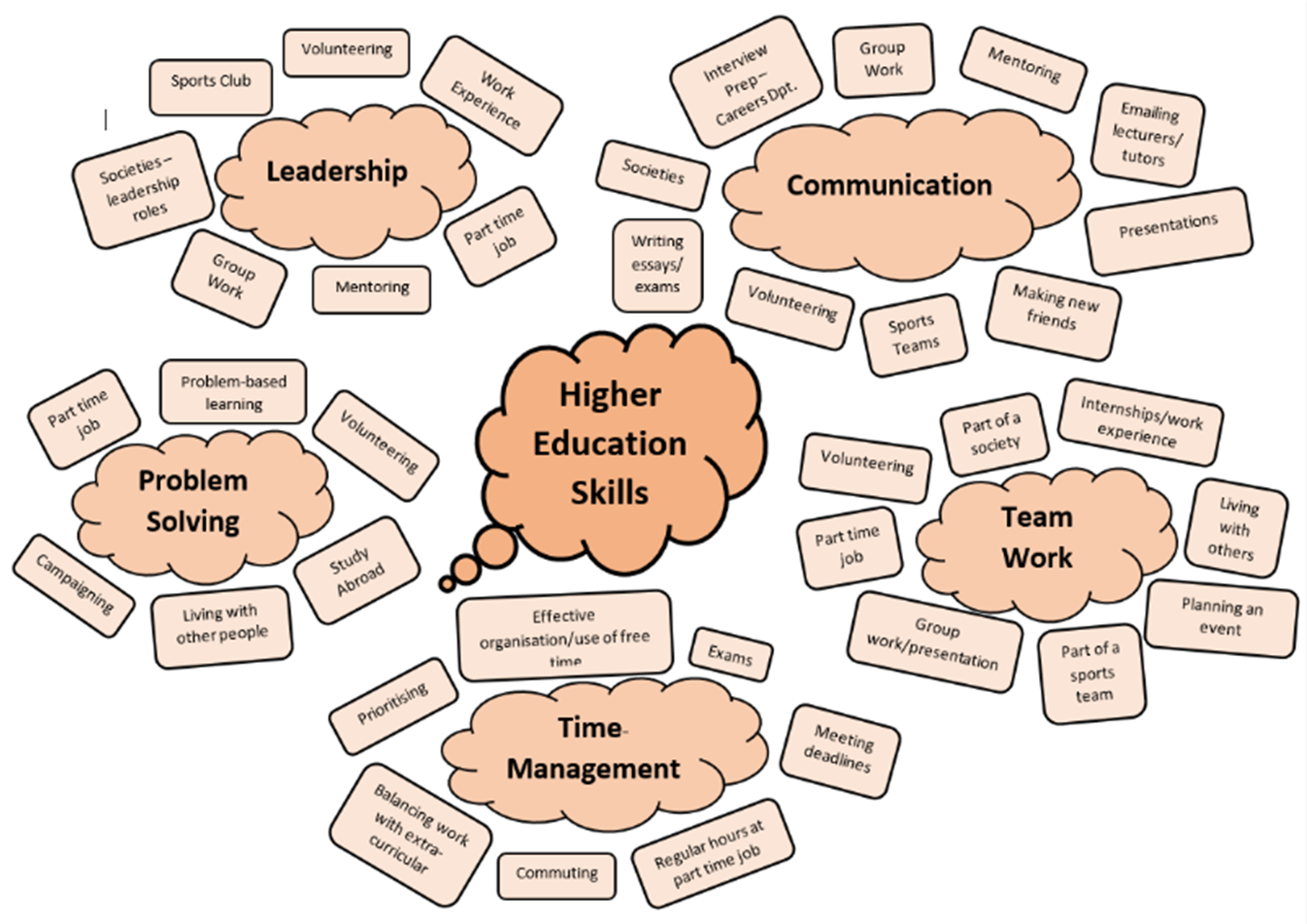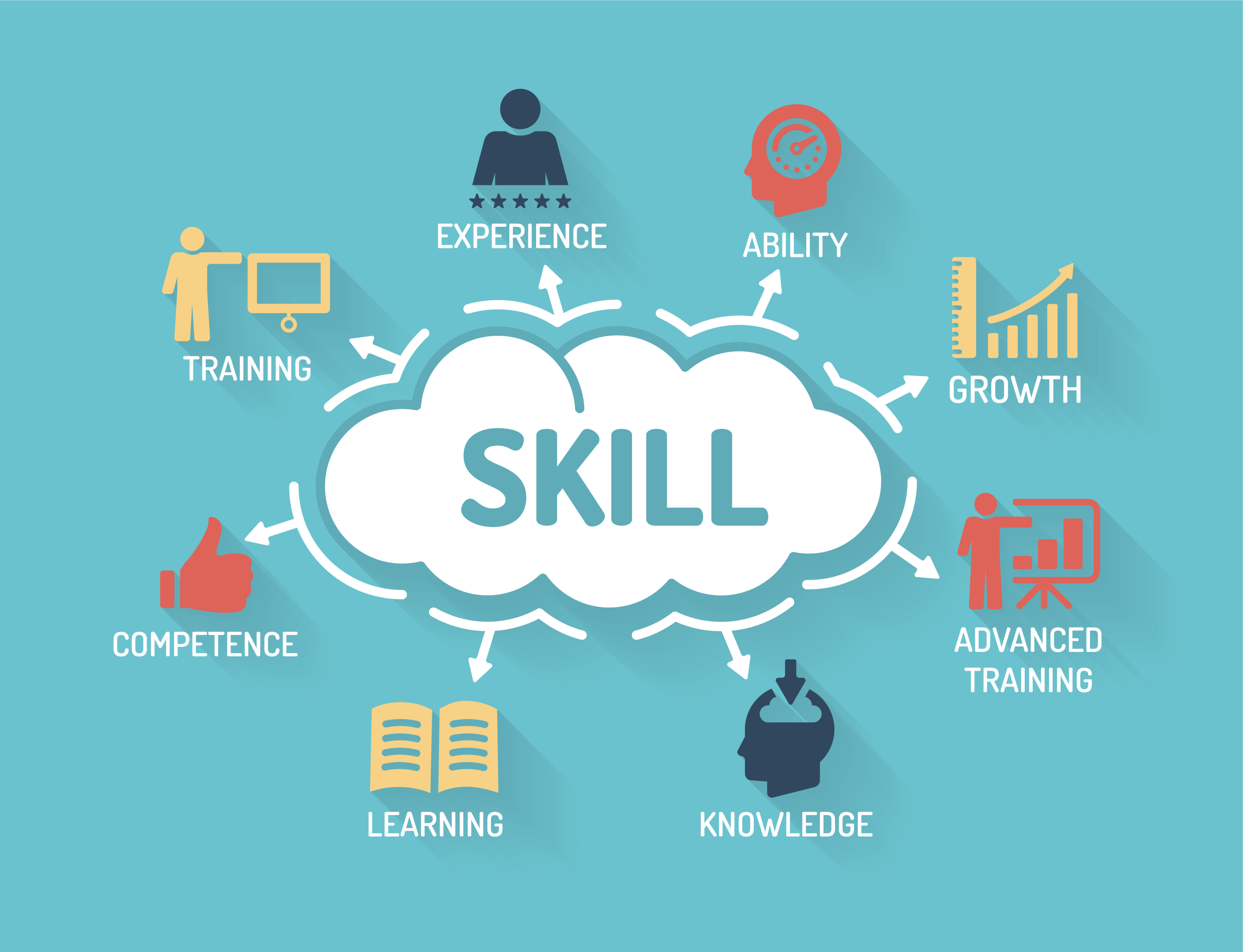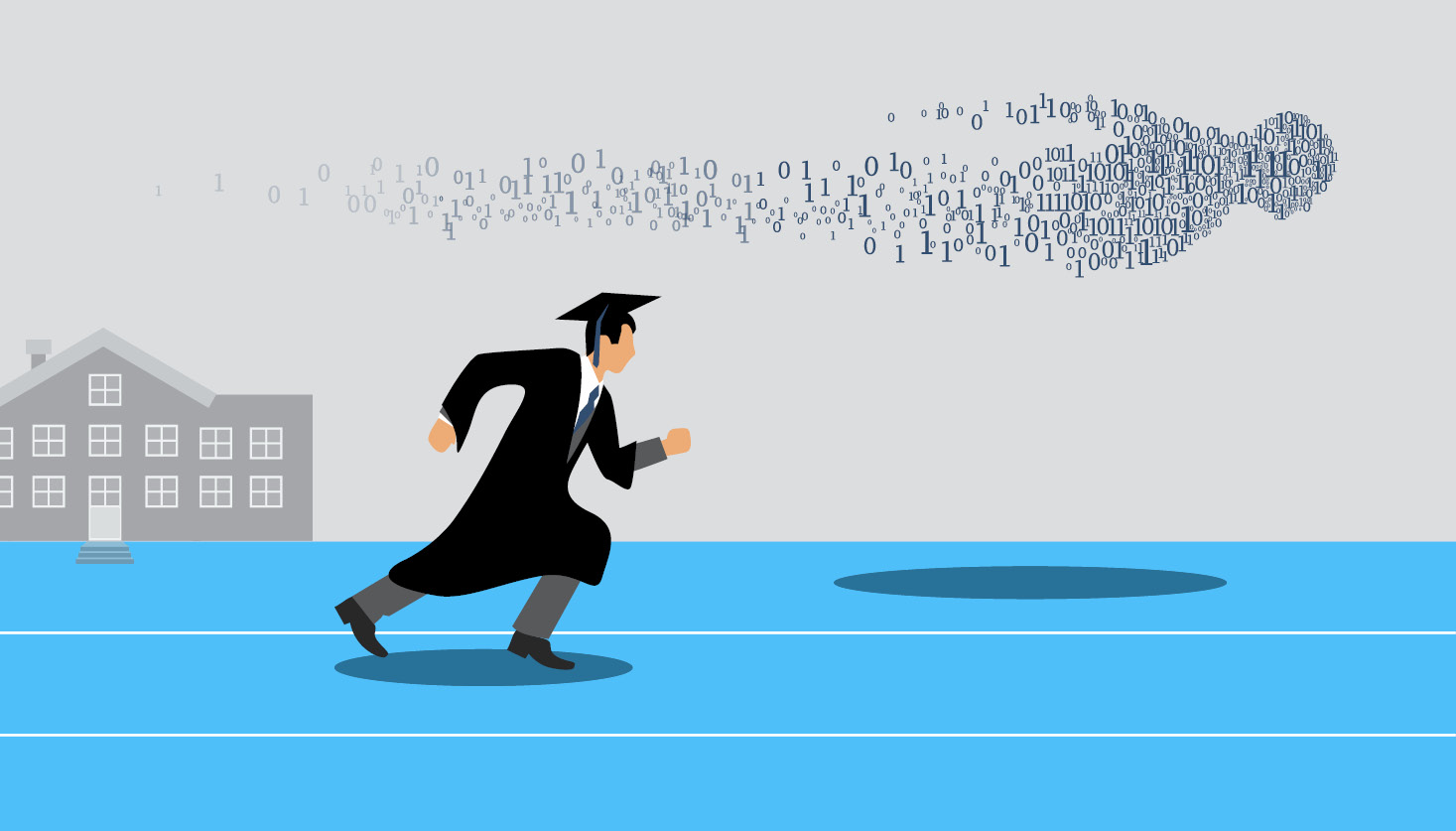Building Skills for Higher Education
Developing the foundation for academic excellence and lifelong learning
The Changing Landscape of Higher Education
Higher education today represents a dynamic environment that requires students to develop a diverse range of skills beyond traditional academic abilities. As educational paradigms evolve and workplace demands shift, students must cultivate competencies that enable them to navigate complex academic challenges, leverage technology effectively, and prepare for professional success.
At Al Mithaq Institute, we recognize that higher education success hinges not just on what students learn, but on how effectively they can access, process, apply, and communicate knowledge in various contexts.
Key Skill Categories for Higher Education
Academic Skills
Research, critical thinking, academic writing, information literacy
Personal Skills
Time management, self-regulation, resilience, stress management
Digital Skills
Digital literacy, media evaluation, online collaboration, data management
Essential Academic Skills
The foundation of higher education success lies in developing robust academic skills that enable effective learning, analysis, and knowledge creation.
1. Research and Information Literacy
In an era of information overload, the ability to find, evaluate, and utilize reliable information is crucial:
Developing Research Proficiency
- • Source Evaluation: Assess reliability, currency, authority, purpose, and accuracy of information sources
- • Database Navigation: Master academic databases relevant to your field of study
- • Search Strategies: Develop effective search queries using Boolean operators and field-specific terminology
- • Citation Management: Utilize citation tools (Zotero, Mendeley, EndNote) to organize sources
- • Information Synthesis: Integrate information from multiple sources to form coherent arguments
Research skills extend beyond simply finding information—they involve critically evaluating sources, recognizing biases, and understanding how different perspectives shape knowledge in your field.
A 2022 study found that students who receive formal training in research methods achieve grades 18% higher than peers without such training, demonstrating the critical importance of developing these skills early in your higher education journey.
2. Critical Thinking and Analysis
Critical thinking—the ability to analyze information, evaluate evidence, and form reasoned judgments—forms the cornerstone of academic achievement:
Question Formulation
Develop the habit of asking probing questions that uncover assumptions and reveal complexity.
- • What evidence supports this claim?
- • What alternative explanations exist?
- • What are the limitations of this approach?
- • How does context influence this situation?
Analytical Frameworks
Learn discipline-specific frameworks for systematic analysis of problems and concepts.
- • SWOT analysis (business)
- • Literary analysis frameworks
- • Scientific method principles
- • Comparative case analysis
Critical thinking skills develop through deliberate practice. Challenge yourself to analyze arguments in course readings, identify logical fallacies in everyday discussions, and practice constructing well-reasoned positions on complex issues.
3. Academic Writing and Communication
The ability to communicate ideas clearly, persuasively, and according to academic conventions is essential across all disciplines:
Structure and Organization
Learn to create logical flow within paragraphs and across entire papers. Master thesis development, evidence integration, and effective conclusions.
Discipline-Specific Conventions
Understand citation styles (APA, MLA, Chicago, etc.), terminology, and organizational patterns specific to your field of study.
Revision Process
Develop systematic approaches to editing for clarity, coherence, conciseness, and correctness. Learn to solicit and incorporate feedback effectively.
Pro Tip: The Writing Process
Separate the writing process into distinct phases:
- Prewriting: Brainstorming, outlining, research
- Drafting: Focus on getting ideas down, not perfection
- Revision: Reorganize, clarify, strengthen arguments
- Editing: Polish language, fix grammar, format properly
- Proofreading: Final check for small errors
This approach prevents the common mistake of trying to perfect each sentence as you write, which often leads to writer's block.
Personal Management Skills
Academic knowledge alone is insufficient for higher education success. Students must also develop personal management skills that enable them to navigate the demands of university life effectively.
1. Time Management and Organization
Higher education involves managing multiple deadlines, projects, and responsibilities simultaneously—often with less external structure than previous educational experiences:
Time Management Systems
Calendar Blocking
Allocate specific time blocks for classes, study sessions, assignments, and personal activities. Create visual boundaries between different types of work.
Task Prioritization Matrices
Use the Eisenhower Matrix to categorize tasks by urgency and importance. Focus on important but non-urgent tasks to prevent crises.
Project Breakdown
Divide large assignments into smaller, manageable tasks with specific completion targets. Track progress visually.
Digital Organization Tools
Leverage apps like Notion, Trello, or Asana for project tracking. Use cloud storage for organized file management across devices.
Effective time management isn't about cramming more activities into each day—it's about strategic allocation of your energy and attention to maximize learning and well-being.
2. Self-Regulation and Independent Learning
Higher education requires significantly more independent learning than previous educational stages. Students must develop self-regulation skills to maintain motivation and focus:
Goal Setting
Create SMART goals: Specific, Measurable, Achievable, Relevant, Time-bound
Self-Monitoring
Track progress, identify patterns, and adjust strategies based on outcomes
Reflection
Regularly evaluate strategies, identify obstacles, and develop improvement plans
Self-regulation involves developing habits that support consistent progress toward academic goals, even when immediate motivation is lacking. This includes creating effective study environments, eliminating distractions, and developing routines that trigger focused work.
"We don't rise to the level of our goals; we fall to the level of our systems."
— James Clear, author of Atomic Habits
3. Stress Management and Resilience
Higher education presents significant stressors—academic pressure, financial concerns, social adjustments, and future uncertainties. Building resilience is essential for sustained success:
Resilience-Building Strategies
Physical Wellbeing
- • Regular exercise and movement
- • Consistent sleep schedule
- • Nutritious eating patterns
- • Hydration and energy management
Mental Wellbeing
- • Mindfulness and meditation
- • Realistic self-talk patterns
- • Cognitive reframing techniques
- • Healthy boundary-setting
Social Connection
- • Building supportive relationships
- • Participating in communities
- • Developing communication skills
- • Asking for help when needed
Purpose & Meaning
- • Connecting studies to core values
- • Maintaining perspective on challenges
- • Celebrating progress and achievements
- • Developing growth mindset
Digital and Technological Skills
Modern higher education increasingly relies on digital tools and platforms. Students must develop technological competencies to succeed in this environment.
1. Digital Literacy Fundamentals
Beyond basic computing skills, students need to develop broader digital literacy to navigate educational technologies effectively:
- Proficiency with learning management systems (Canvas, Blackboard, Moodle)
- Cloud-based collaboration tools (Google Workspace, Microsoft 365)
- Digital note-taking and organization applications
- Understanding of file management, backups, and digital security practices
- Ability to troubleshoot common technical issues independently
2. Information Evaluation in Digital Environments
The digital landscape presents both opportunities and challenges for academic research. Students must develop skills to navigate this terrain critically:
Digital Information Evaluation Framework
Source Authority
Evaluate the credentials, expertise, and reputation of authors and publishing organizations
Content Accuracy
Assess factual correctness, evidence quality, and methodological soundness
Purpose & Objectivity
Identify potential biases, commercial interests, or ideological agendas
Currency & Relevance
Consider publication date, updates, and contextual applicability to your research
Transparency
Evaluate citation practices, disclosure of limitations, and data accessibility
3. Digital Communication and Collaboration
Higher education increasingly involves digital collaboration, requiring students to develop effective online communication skills:
Synchronous Collaboration
- • Video conferencing etiquette and techniques
- • Active participation in virtual discussions
- • Real-time document collaboration
- • Virtual presentation skills
Asynchronous Collaboration
- • Clear written communication in digital formats
- • Project management in distributed teams
- • Providing constructive digital feedback
- • Managing notification systems effectively
Interpersonal and Collaborative Skills
Higher education increasingly emphasizes collaborative learning and group projects, requiring students to develop strong interpersonal abilities.
Key Collaborative Competencies
1. Active Listening
Develop the ability to focus completely on speakers, understand their perspectives, and respond thoughtfully rather than simply waiting for your turn to speak.
2. Constructive Feedback
Learn to provide specific, actionable feedback that helps improve outcomes while maintaining positive relationships. Balance critique with appreciation.
3. Conflict Resolution
Develop strategies for addressing disagreements productively, focusing on issues rather than personalities, and finding mutually beneficial solutions.
4. Cultural Competence
Build awareness of cultural differences in communication styles, work approaches, and expectations to collaborate effectively in diverse teams.
Collaborative skills become increasingly valuable not only for academic success but for future professional opportunities. Most employers consistently rank teamwork and communication among their most desired qualities in new graduates.
Frequently Asked Questions
How early should I begin developing these skills before entering higher education?
Ideally, begin building these skills at least 1-2 years before entering higher education. However, it's never too late to start. Many universities offer orientation programs and first-year seminars specifically designed to help students develop these competencies. If you're already in higher education, prioritize the skills most relevant to your immediate challenges, then gradually expand your focus.
Which skills tend to be most challenging for new university students?
Time management and self-regulation typically present the greatest challenges for new students. The transition from structured secondary education to the more independent university environment requires a significant adjustment in how students plan their time and maintain motivation without constant external deadlines and reminders. Many students also struggle with academic writing at the university level, which demands more sophisticated analysis and argumentation than previous educational experiences.
How can I determine which skills I need to develop most urgently?
Conduct a self-assessment by reviewing course syllabi and assignment requirements for your upcoming or current programs. Identify patterns in the types of tasks you'll need to complete and compare them to your current comfort level with those activities. Many universities also offer skills assessments through their academic support services. Additionally, reflect on feedback from previous educational experiences—recurring comments from teachers often highlight areas for improvement.
Are these skills equally important across all disciplines and fields of study?
While all these skill categories are valuable across disciplines, their relative importance varies by field. For example, STEM fields may emphasize quantitative analysis and problem-solving, while humanities programs often place greater emphasis on written communication and textual analysis. Research methods also vary significantly between disciplines. Investigate the specific expectations of your intended field by reviewing program descriptions, talking to current students or faculty, and examining scholarly work in the discipline.
How can I demonstrate these skills to potential employers after graduation?
Document your skill development through concrete examples and outcomes. Maintain a portfolio of significant projects, research papers, or group contributions that demonstrate your capabilities. Seek leadership roles in academic or extracurricular activities that allow you to apply these skills in visible ways. When interviewing, prepare specific stories that illustrate how you've applied these competencies to overcome challenges or achieve goals. Consider pursuing certifications or badges in areas like digital tools, research methods, or project management that provide external validation of your skills.
How Al Mithaq Institute Can Help You Develop Higher Education Skills
Al Mithaq Institute offers specialized programs designed to prepare students for higher education success:
- • Academic Writing Workshops: Develop essential writing skills for university-level assignments
- • Research Methods Training: Learn effective research techniques and information evaluation
- • Digital Literacy Programs: Master essential technology tools for academic success
- • Time Management Systems: Develop personalized approaches to managing academic workloads
- • Collaborative Skills Development: Build effective teamwork and communication abilities
Our experienced instructors provide personalized guidance to help you build the specific skills you need for your educational and career goals.
Conclusion
Building skills for higher education is a continuous process that begins before university entrance and extends throughout your academic journey. By intentionally developing academic, personal, digital, and interpersonal competencies, you establish a foundation not only for educational success but for lifelong learning and professional achievement.
Remember that skill development is rarely linear—it involves experimentation, feedback, adjustment, and consistent practice. Approach this process with patience and persistence, celebrating progress while continuing to identify areas for growth.
"Education is not the learning of facts, but the training of the mind to think."
— Albert Einstein







